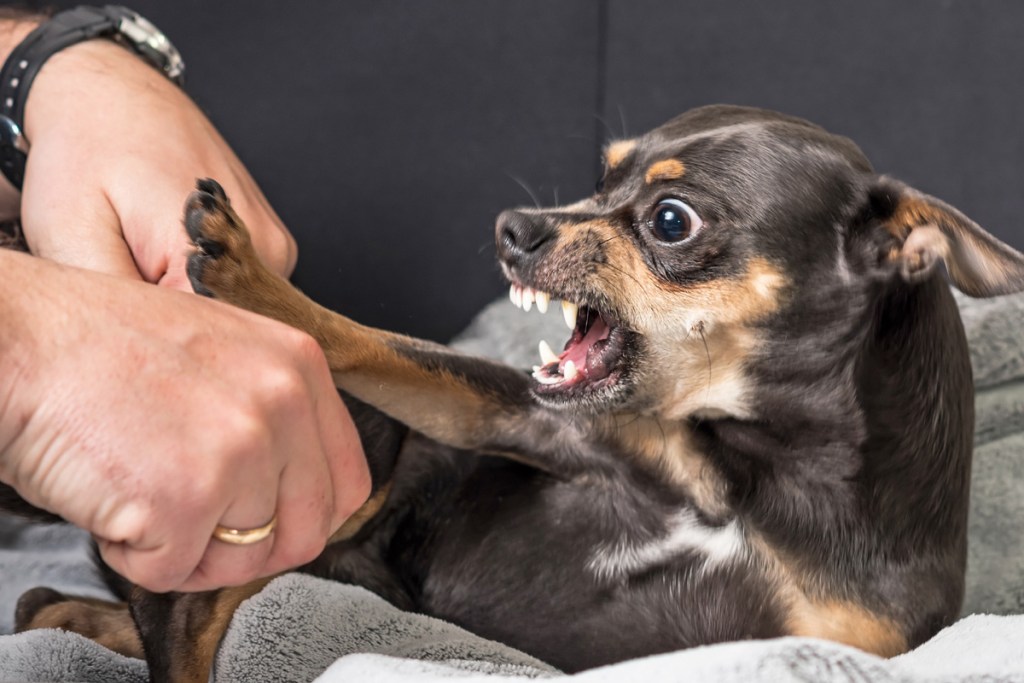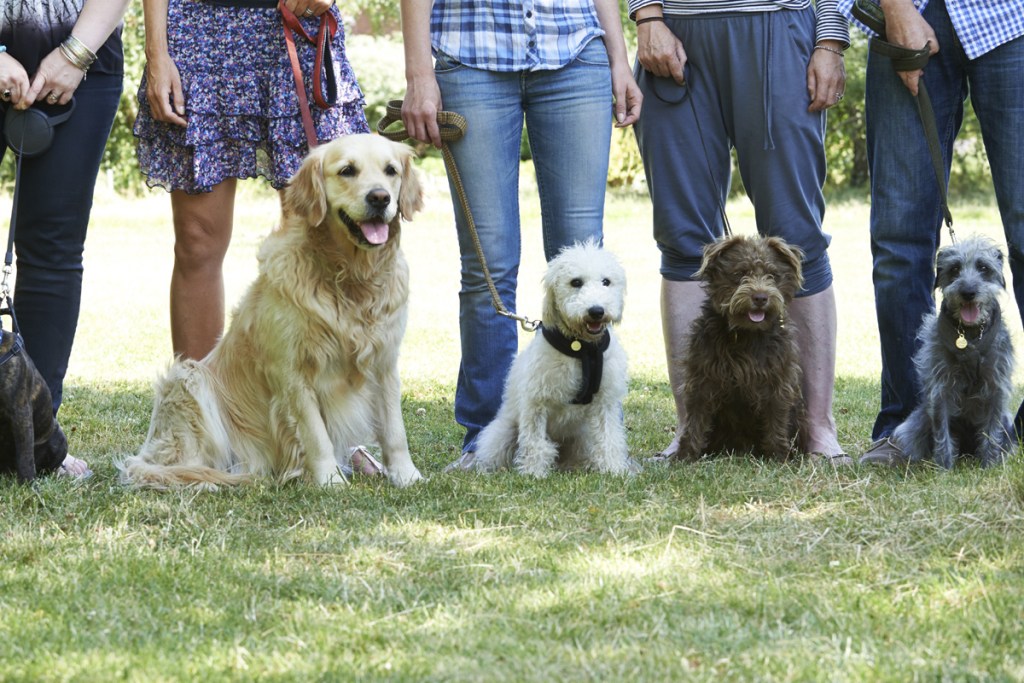When a beloved dog bites, pet parents feel betrayed and confused. They never thought their dog could hurt anyone. But even the smallest, cuddliest, cutest dogs can bite under certain circumstances. Pet parents need to keep in mind that it’s a dog’s individual history and behavior and not his breed type that determines whether a dog will bite. By practicing responsible pet ownership and learning to read a dog’s body language, you can prevent most bites, say American Veterinary Medical Association experts.
There are many reasons a dog might bite
According to Today’s Veterinary Practice magazine, biting is the most common reason dogs are treated by veterinary behaviorists. There are many reasons why a dog might bite, including the following:
- Many dogs have a natural tendency to defend their territory, and some take it more seriously than others. According to the U.S. Postal Service, every year, thousands of postal workers are attacked by dogs defending their territory.
- Dogs who are dominant aggressive may challenge pet parents when asked to do something they don’t want to do, such as give up a toy or treat or get down from a couch or bed.
- Dogs with fear of aggression may bite in an attempt to escape when they feel threatened by someone or something.
- It’s not unusual for people to get bitten due to redirected aggression when trying to break up a dogfight.
- Dogs may also bite when injured or in pain out of fear that being touched will cause them more discomfort.
- Children often get bitten when roughhousing with dogs. Even the friendliest dogs can bite if pushed past their tolerance level. Children should always be supervised when around dogs.

How do you train a dog not to bite?
While there’s no guarantee that your dog will never bite, you can greatly reduce the risk of it happening by taking certain steps, say training experts at the American Society for the Prevention of Cruelty to Animals (ASPCA). For example, dogs who are spayed or neutered are less likely to bite.
Teach a puppy to play gently
ASPCA behaviorists believe that puppies who learn bite inhibition are less likely to bite in adulthood. If your pup bites too hard when playing, yelp just as his littermates would. If he stops, praise him and continue playing. If he gets excited and bites harder, end the game. Repeat this training during playtime until he learns to be gentle.
Early socialization is critical
Training experts say that dogs who aren’t socialized are less confident and more likely to aggress or bite. As soon as possible, puppies should be exposed to a wide variety of positive experiences. If you adopt an older dog from a shelter or rescue, you should also work on socialization to help the dog become comfortable in different situations.
Training builds confidence
Enrolling your dog in humane, reward-based training classes is a great way to teach basic obedience commands while building your dog’s confidence. Training experts say that calm, confident dogs are far less likely to bite than shy, fearful ones.

Pay attention when your dog growls
Pet parents will often reprimand their dogs for growling, and that’s a big mistake, according to behaviorists. A dog’s growl is a warning that the dog is uncomfortable and you need to back off or remove the dog from a situation before someone gets bitten. Pay attention to what triggered the growl. Did someone try to remove the dog’s dish? Did you ask the dog to get off the couch? Maybe your dog growled when approached by a stranger? It’s always best to enlist the help of a positive-motivation trainer to develop a training plan when working with a dog who is growling so that the behavior doesn’t result in a bite.
Should you punish your dog for biting?
If your dog bites you or someone else, punishment is not the way to deal with the problem, say experts at the Animal Humane Society in Minnesota. In fact, training experts caution that any verbal or physical abuse to show your dog who is in charge could escalate the problem. Instead, enlist the help of a qualified positive-reinforcement trainer or behaviorist to evaluate your dog and provide assistance with behavior-modification techniques.
Do dogs feel guilty after they bite?
According to an article in Scientific American magazine, 74% of pet parents believe that their dogs experience guilt. This is based on how their dogs react after doing something wrong, with responses like looking at them with soulful eyes, cowering with their tails held low, or yawning. These are also classic signs of fear and stress, veterinary experts say. An AKC article concludes that “the jury is still out” on whether our dogs can feel guilt. When it comes to biting, what’s most important is figuring out why the behavior happened and what steps you can take to prevent a recurrence.
In helping to prevent dog bites, pet parents need to remember that dogs are individuals. Not every dog will be comfortable in every situation. As a responsible pet parent, it’s up to you to know your dog’s comfort level. You can set your dog up for success and gain his trust by avoiding situations that make him feel threatened.
Editors' Recommendations
- 6 easy DIY dog treats anyone could make
- 5 reasons you really need to get a dog car seat
- 50 amazing boy dog names to consider for your new puppy
- These fluffy dog breeds make the best cuddlers
- Can dogs see in the dark? Your guide to your dog’s vision




